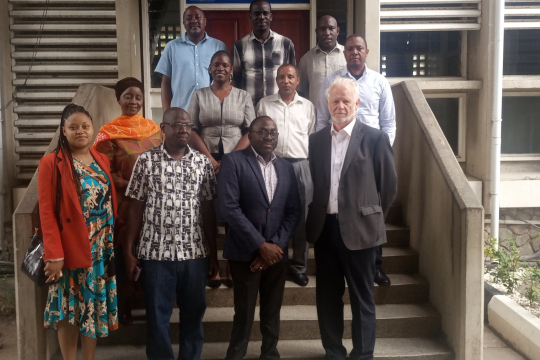EfD Tanzania is part of a collaborative project on energy economics, governance, and research competence that aims at building capacity for Ph.D. and MA graduates. The implementing partners of the project had a meeting on August 8, to discuss, among other things, how to develop the Ph.D. and Master's program in energy economics and governance.
Aims to develop curriculum
The implementing partners are the Norwegian University Life Sciences /School of Economics and Business (NMBU) and the Makerere University Business School (MUBS) and the University of Dar Es Salaam School of Economics (UDSoEC) where Environment for Development Tanzania is hosted.
The collaboration aims to develop a Ph.D. curriculum in energy economics and governance (PEEG), a master’s in energy economics and governance, scholarships for the master in energy economics, and governance (MEEG), a postdoc from each of the partners, and a bootcamp training.
Norwegian support
The bootcamp is aimed at skilling the staff and students of the Global South partner institutions with hands-on training in modeling.
This collaboration is led by the Norwegian Programme for Capacity Development in Higher Education and Research for Development (NORHED II). Prof. Razack Lokina is coordinating the project in Tanzania.
More expertise is needed
Razack Lokina highlighted the importance of the project at the University of Dar es Salaam. The project has come at the right time when the government of Tanzania and Uganda has a shortage of expertise in the area of environmental economics and natural resources, particularly in energy. This shortage resulted in too few researchers in the energy sector, insufficient power generation capacities, as well as inadequate manpower for transmission and distribution of energy which have made the situation worse.
He noted that this program has been established when the government is striving to increase access to electricity, reduce technical and nontechnical losses, and bring modern energy to their citizens to sustain economic growth in the country.
By: Salvatory Macha
